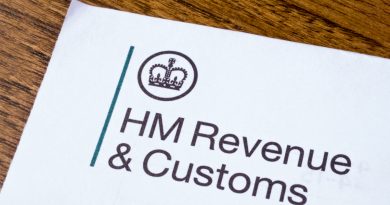Debt Collection Facts That Financial Institutions Must Know

For financial stability, a thorough understanding of the banking sector, namely the debt collection procedure is essential. However, it’s not as simple as it sounds to get your money back. So, you should be familiar with the relevant rules and legislation. There are several resources available to take help with that. However, it can also be overwhelming, so you must make a wise choice.
Use of Skip Tracing Techniques
It is shrewd to use skip-tracing techniques to increase bank debt collection. However, the process is not always easy to follow. A skilled skip tracer uses a variety of techniques to confirm and update the proper contact information.
To locate a past-due account, a skip tracer must verify the account holder’s name, address, phone number, and credit history. Meanwhile, to find the missing person, the skip tracing company will have to do an online inquiry. In the course of skip tracing, one needs to often combine search engines, phone books, and social media.
Besides identifying oneself, a skip tracer must find the target’s suitable contact information. This is important for a number of reasons. The skip tracer must be completely transparent in the first stage. Additionally, the skip tracing service must use caution to avoid contacting the same third-party repeatedly.
The main source for a skip tracer is the internet. They’ll use it for a variety of research activities. It includes locating the information that will be truly helpful to them. To put together this kind of information, one should use locations such as the debtor’s residence, place of employment, and place of kinship.
You can also send an email as a skip-tracking technique. Since sending and receiving emails is completely free, many people have email addresses. This is beneficial as you can use it anywhere without the fear of data loss. So, using email to communicate with a debt collector can improve the customer’s experience.
On the other hand, the most effective way to assess a skip tracing service is through free trials. Most skip-tracking software vendors provide trial versions. So, during the trial period, you can assess the features and decide if they are a good fit for your collection agency.
CARM-Pro
Financial organizations can pursue their debt collection objectives with the help of the CARM-Pro debt collection software. Thanks to the flexible workflows and high-quality reporting provided by the software, collectors can boost output while reducing overhead.
CARM-Pro can track customer activities in a way that is helpful for debt recovery. They can then determine how different financial arrangements and payment habits affect credit scores. Additionally, CARM-Pro offers quick acknowledgment of on-time payments and regular payment reminders.
Intelligent Banking Solutions
The software also lets collectors choose their preferred method of contact. Moreover, the simple layout will appeal to collectors. It makes it easy for them to access any account in their portfolio. Besides, it also streamlines the entire collection process by eliminating the time-consuming manual stages.
Additionally, one can configure CARM-Pro to meet particular lender branding requirements. This makes it easier for debtors, collectors, and other parties to communicate. For example, programmatic coordination between debt collectors and bankruptcy lawyers is possible.
You can also set up this tool to evaluate debtor accounts based on variables like FICO and days past due in addition to automating collection methods. This way, collectors can reduce write-offs by concentrating on the debtors who provide the highest risk.
Therefore, automated collection software saves time and effort. Meanwhile, they also assist you in maintaining good standing with the law. Agents might spend more time on preventative steps and less time on repetitive, routine tasks. As a result, collectors like their jobs more and are better able to focus on assisting consumers.
CARM-Pro allows for the recording of crucial communication acts. For example, requests for payment, explanations of delinquencies, and clarifications of disputes. This ensures that collectors follow all relevant rules and give the bank thorough records of all pertinent transactions.
Debtor Responsibility
Keeping track of your debt is not as easy as it may seem, which is why many countries opt to hire the big guys. However, the good news is that the Treasury and Department of Finance have some resources at their disposal to lighten the public’s load of debt management. One such advancement is the Treasury Department’s SmartDebt program. This program requires the US Treasury to inform the public of its debt collection procedures. The primary advantage is that it enables the public auction of defaulted debt. This helps agencies in recovering some of the money they have lost on interest and debt management costs. The Treasury Department has a policy in place that requires departmental information sharing. Moreover, it also has a few other cool tools for getting things done.
There are many things to think about when managing your debt. The best strategy is a readiness to adopt a flexible frame of mind. So, you should prioritize paying off debt, but you should also be on the lookout for methods to cut costs. Only two of the many themes that you can study are the appropriate use of debt, interest rates, and the equitable distribution of credit to the impoverished. Moreover, preventing the government from saddling the poor with unsecured debt like credit cards and personal loan installments should be the main goal in this situation. This is quite irritating to many families and can have negative effects. Recent FTC research indicates that the majority of loan buyers aren’t even getting their data. Therefore, it is crucial to educate debt buyers about the dangers of government borrowing to keep them on guard.
In Accordance With The Fair Debt Collection Practices Act
Understanding the Fair Debt Collection Practices Act is crucial whether you want to fix your debt problems or simply stay out of future financial trouble. This federal statute prohibits debt collectors to use any type of abuse, intimidation, or harassment.
So, if any debt collector has ever bothered you, you can register a complaint with the Consumer Financial Protection Bureau. On the Bureau’s website, you can find connections to helpful resources for debtors as well as an overview of the relevant laws. Additionally, it offers a platform for clients to ask CFPB inquiries.
Similar Acts
One state statute that adds extra protections for debt-stricken people is the Virgin Islands’ Fair Debt Collection Practices Act. Besides, Washington, DC, and 19 other states have state-level protections in place too. The principal targets of these restrictions are the conduct and correspondence of debt collectors.
The Fair Debt Collection Practices Act does not provide any protection for debts owed by small firms. However, some jurisdictions require both initial and subsequent disclosures.
The Fair Debt Collection Practices Act limits the ways and things that collectors can say. So, customers must get validation communications from collectors in the language of their choice. Additionally, they must notify customers in advance before sending information to credit reporting agencies. They are not allowed to publicly identify clients who make harassing calls, don’t pay their bills, or threaten violence. Moreover, it also makes the collection of emails from a consumer’s employer’s email address illegal.
Regulation F covers the use of electronic communication in the debt collection process. Customers’ email addresses and SMS numbers are secure. Additionally, this rule prohibits debt collectors from using any forum that permits open discussion. However, it does not need a set amount of time to pass between electronic messages like emails and texts.
The FDCPA does not protect past-due commitments. A debt collector may keep making attempts to persuade a customer to pay a debt even after the statute of limitations has expired.




